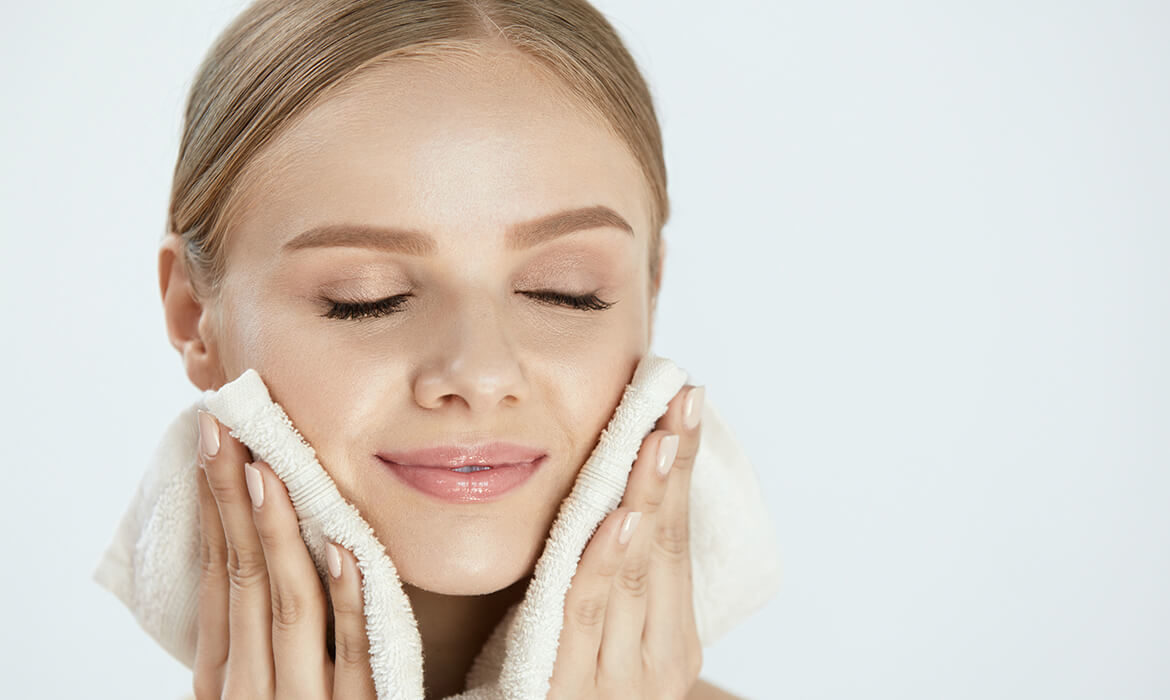Signs You Have Sensitive Skin + How to Avoid Triggers & Care for Your Delicate Skin!
Do you suffer from sensitive skin? If so, it’s not surprising since almost 13,000 chemicals are used in the cosmetics industry today. Out of those, the average woman is exposed to a staggering 168 chemicals every single day!! It’s estimated that approximately 50% of the population suffers from sensitive skin.
Signs You Might Have Sensitive Skin
Below are some signs you may have sensitive skin.
If immediately after using a skincare and/or cosmetic product,
- your skin gets flushed,
- your skin feels tight,
- your skin gets itchy,
- your skin burns or stings,
- your skin gets blotchy,
- your skin gets a rash,
- your skin develops small bumps,
- your skin break outs, or
- your skin becomes extremely dry and flakey,
then, you most likely have sensitive skin!
Factors That Contribute to Sensitive Skin
Several factors can contribute to sensitive skin. In order to avoid skin sensitivities, it’s necessary to determine what your specific triggers might be. To narrow things down, here are the most common triggers that can contribute to sensitive skin.
Sensitive Skin Triggers
- Preservatives found in cosmetics products (i.e. parabens, methylisothiazolinone)
- Fragrances found in body care products such as moisturizers, mists, perfumes, body wash, hair products, laundry detergent, etc.
- Sulfates (lathering agents) found in hand soap, cleansers, toothpaste, shampoo, etc.
- Washing/exfoliating your skin too often
- Environmental factors such as pollution and climate changes
- UV damage
- Poor hygiene (i.e. not removing makeup before bed)
- Poor diet (too much sugar/caffeine/alcohol)
- Stress
- Allergies
- Lack of sleep
- Hormones
- Medications
- Smoking
- Health problems (diabetes, cancer)
- Skin conditions (eczema, rosacea, psoriasis)
Many of the factors listed above are avoidable triggers, so it’s possible to have some control over your sensitive skin issues. Although certain medical conditions, medications, and allergies aren’t always avoidable, it’s possible to greatly reduce your skin sensitivities by taking some extra precautions when caring for your skin.
Avoiding Sensitive Skin Triggers and Caring for Your Delicate Skin
Caring for your sensitive skin means you need to be extremely careful with what you put on it. When you develop a skin irritation, try and track what products you’ve used, what medications you’re on, what you’ve eaten, etc. Once you’ve pinpointed what your trigger is, you can try and avoid it in the future.
Here are some tips to follow so you can avoid skin irritations and prevent subsequent skin reactions.
- Avoid sensitive skin triggers (listed above).
- Always do a patch test when trying out new body care products.
- Always read the labels! Use body care products that contain a limited ingredients list (preferably ingredients you can pronounce).
- Cleanse your body with lukewarm water to avoid drying out your skin. Gently pat your skin dry with a towel and apply a hydrating moisturizer while your skin is still damp.
- Strengthen and restore your skin’s lipid barrier by using creams containing high fat content. Your lipid barrier is what seals in your skin’s moisture and prevents water from evaporating. A healthy lipid barrier decreases your chances of developing skin sensitivities. It acts as a shield to prevent harmful substances from penetrating into your skin.
- Avoid ingredients that can dry out your skin (i.e. alcohol, AHA, BHA, retinoids)



